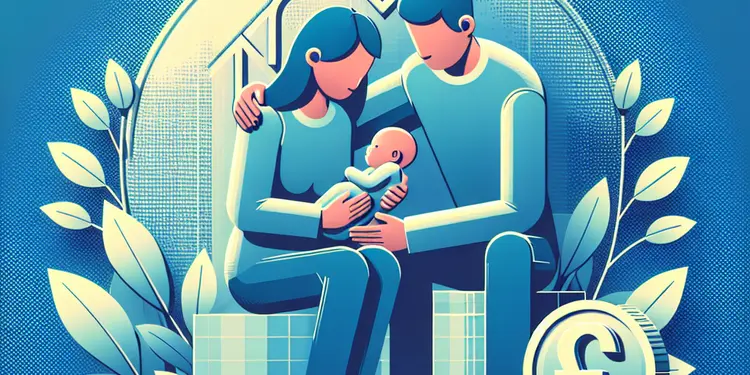
Find Help
More Items From Ergsy search
-
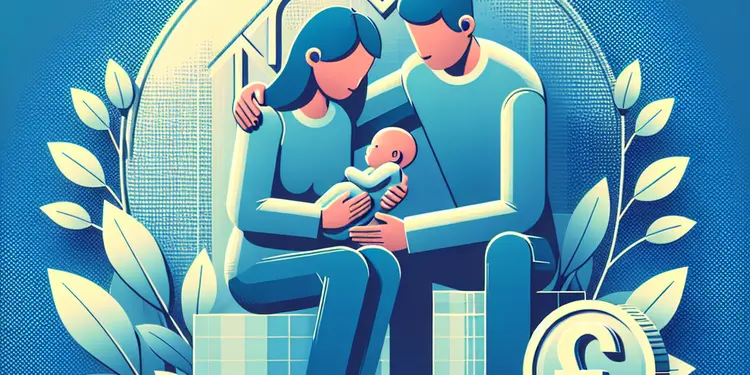
How can family members support someone with postnatal depression?
Relevance: 100%
-
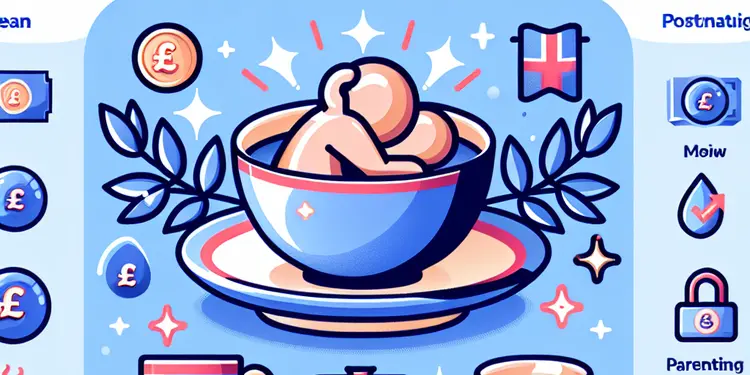
Are there support groups for postnatal depression?
Relevance: 100%
-
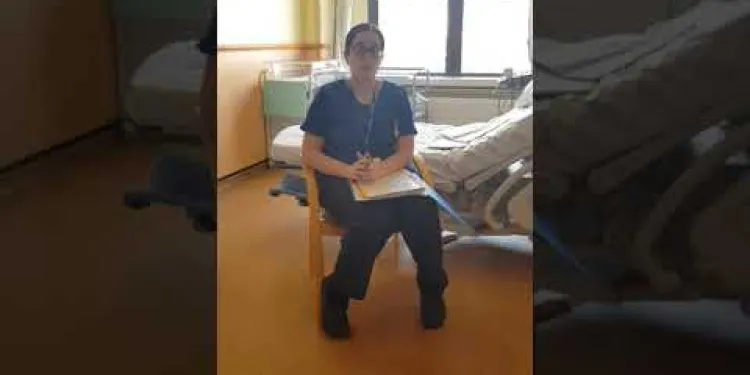
Postnatal Depression
Relevance: 96%
-
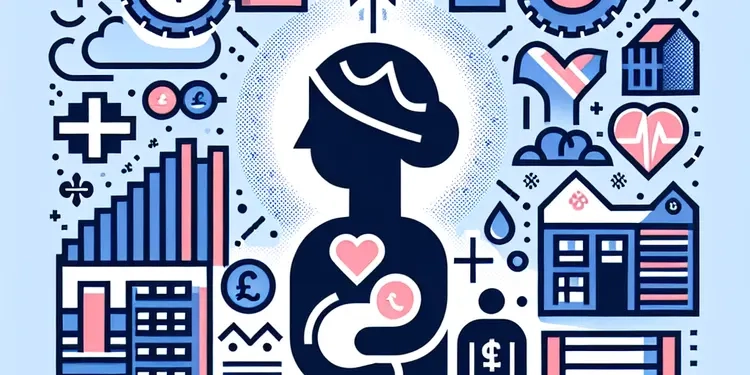
What is postnatal depression?
Relevance: 95%
-
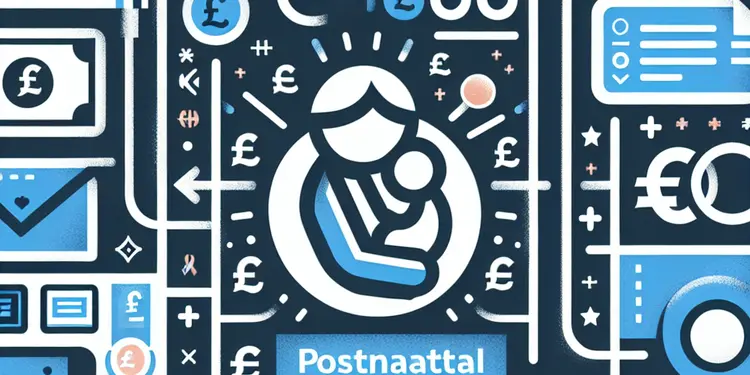
Is postnatal depression preventable?
Relevance: 92%
-
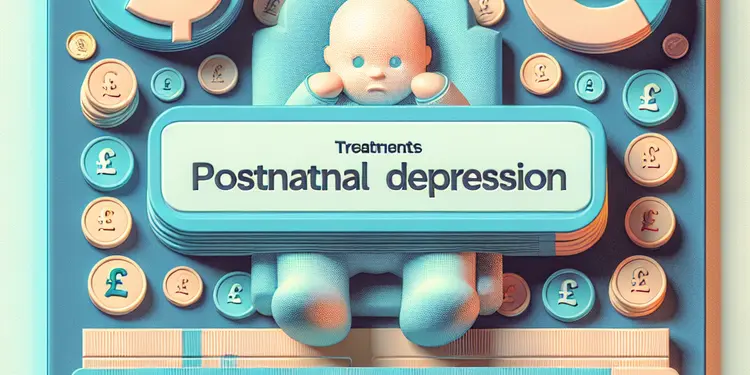
Are there treatments available for postnatal depression?
Relevance: 91%
-

Is postnatal depression a long-term condition?
Relevance: 91%
-
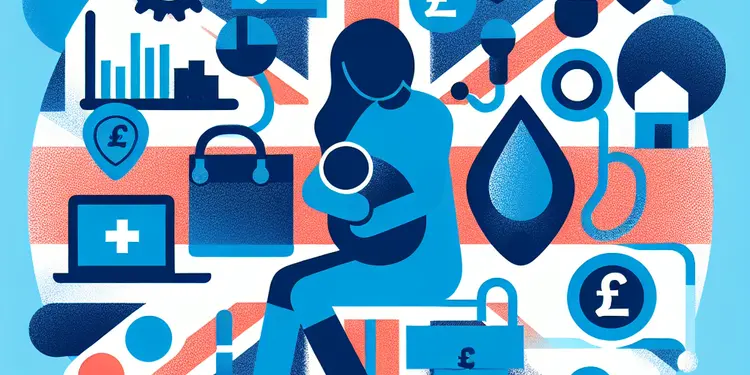
How is postnatal depression diagnosed?
Relevance: 91%
-

Postnatal Depression - Leanne's Story
Relevance: 90%
-

What causes postnatal depression?
Relevance: 90%
-
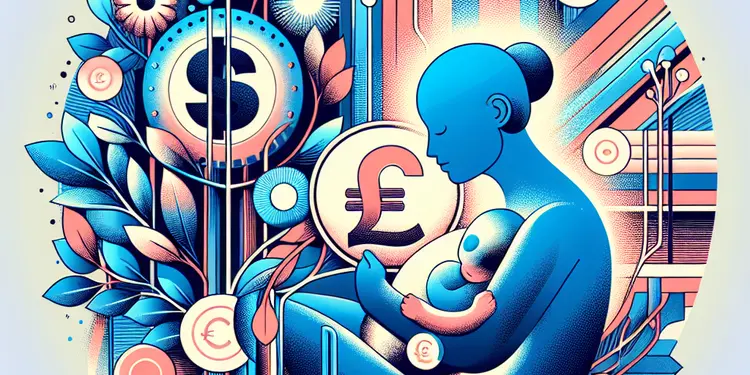
What are the symptoms of postnatal depression?
Relevance: 88%
-

Can fathers experience postnatal depression?
Relevance: 87%
-
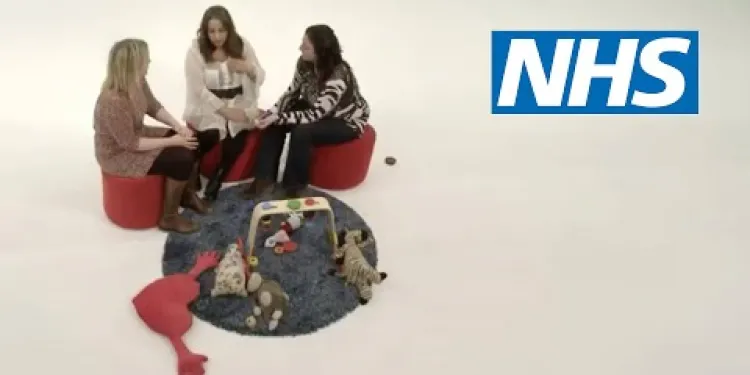
How do I know if I have postnatal depression? | NHS
Relevance: 85%
-
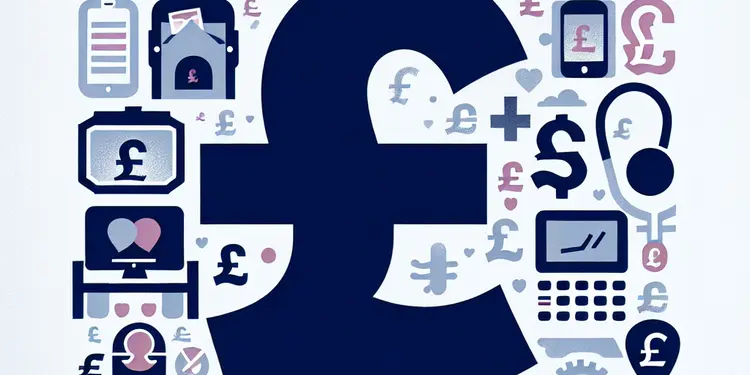
What should I do if I suspect I have postnatal depression?
Relevance: 84%
-

Can postnatal depression affect subsequent pregnancies?
Relevance: 84%
-

Can lifestyle changes help with postnatal depression?
Relevance: 83%
-
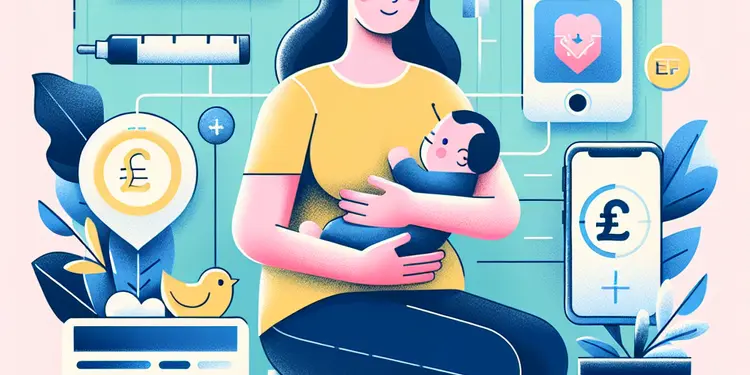
How is postnatal depression different from the 'baby blues'?
Relevance: 82%
-
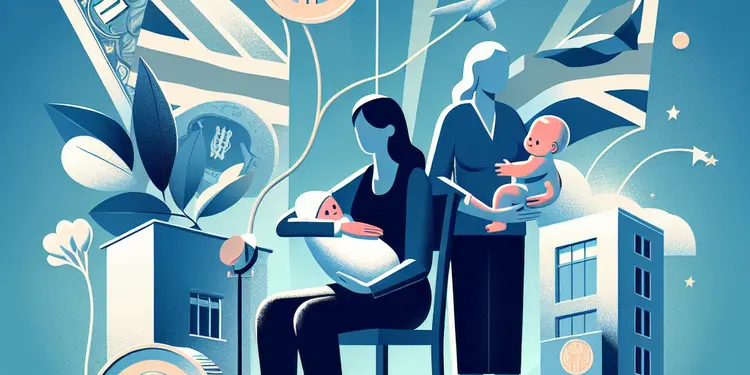
Can postnatal depression recur after treatment?
Relevance: 82%
-
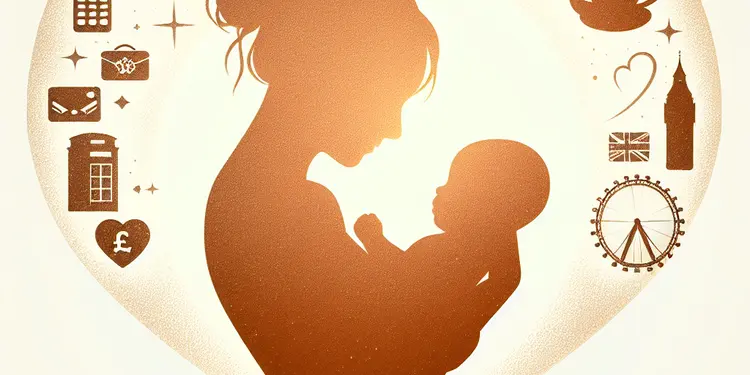
How does postnatal depression affect bonding with the baby?
Relevance: 81%
-
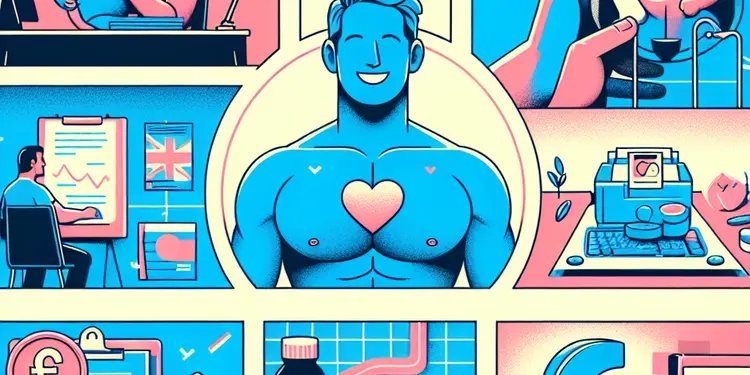
Is medication necessary for treating postnatal depression?
Relevance: 81%
-

Should someone with postnatal depression seek professional help?
Relevance: 80%
-
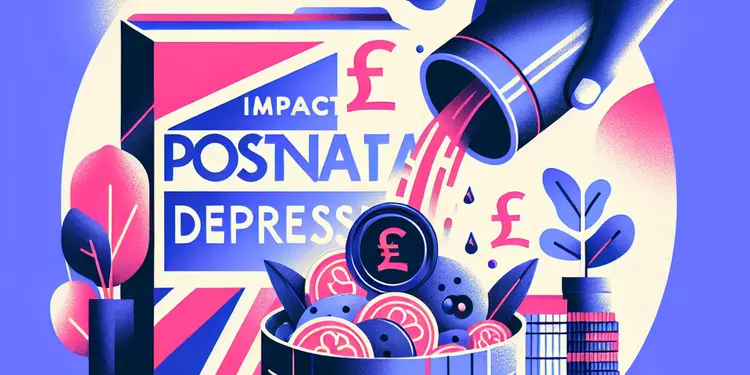
Can diet impact postnatal depression?
Relevance: 79%
-
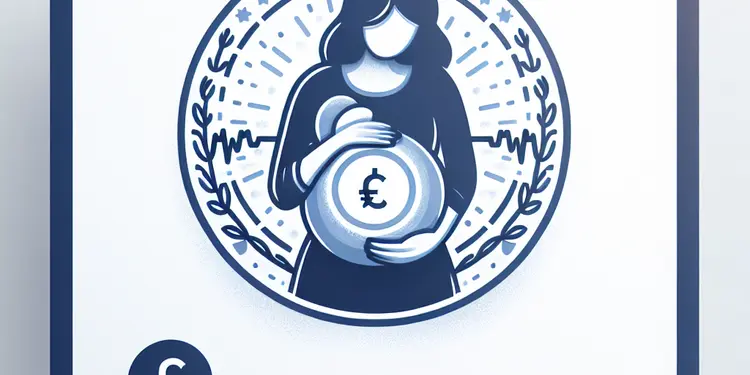
How soon after childbirth can postnatal depression occur?
Relevance: 55%
-

Mental Health Support Resources for Families
Relevance: 51%
-
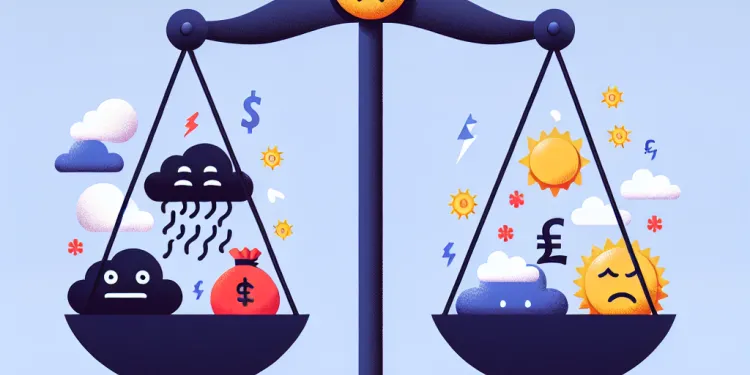
What role do unhealthy dynamics play in causing depression?
Relevance: 42%
-

Clinical depression: Lawrence's story | NHS
Relevance: 41%
-
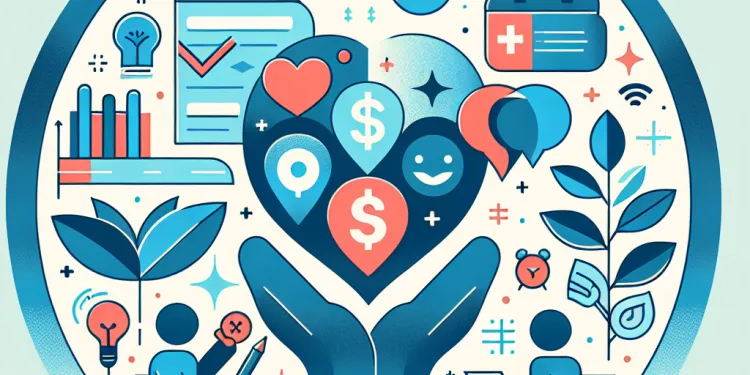
Mental Health Support for Families: Resources and Strategies
Relevance: 41%
-

Treating anxiety and depression - www.slam.nhs.uk
Relevance: 40%
-

What support is available for families of individuals with PIMD?
Relevance: 40%
-

How can families support a member with autism?
Relevance: 40%
-
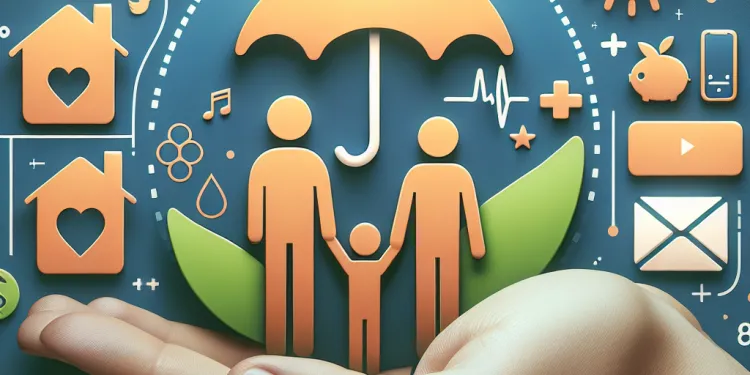
Mental Health Support for Families: Resources and Helplines
Relevance: 39%
-

Mental Health Support for Families: Resources and Guidance
Relevance: 39%
-
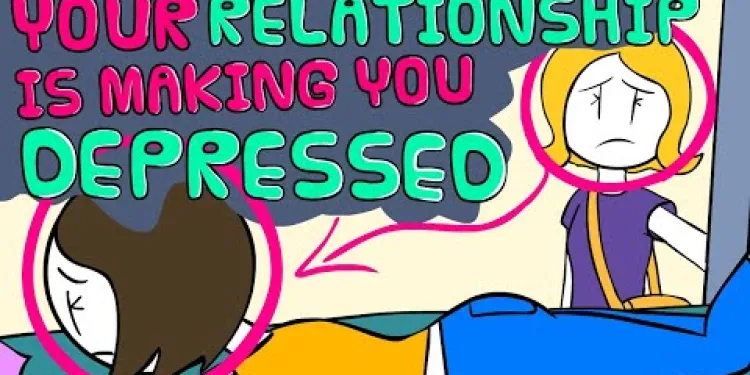
7 Signs Your Relationship is Making You Depressed
Relevance: 38%
-
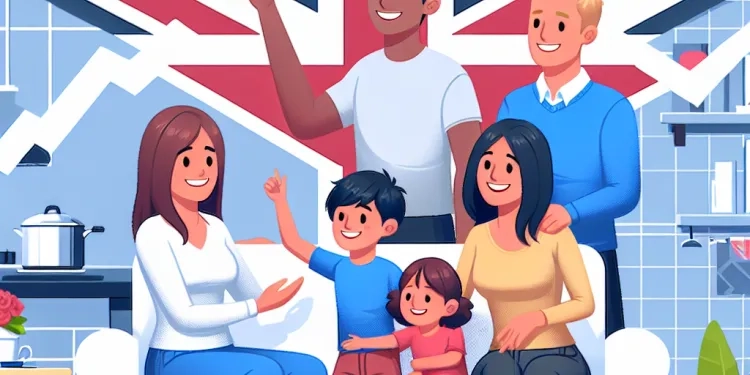
Government Support Schemes for Families Affected by Inflation
Relevance: 38%
-

Government Announces New Support Scheme for Low-Income Families
Relevance: 38%
-
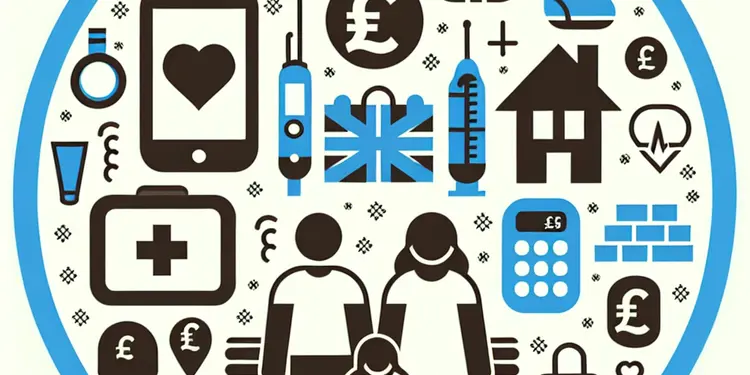
What support is available for families dealing with type 1 diabetes?
Relevance: 38%
-
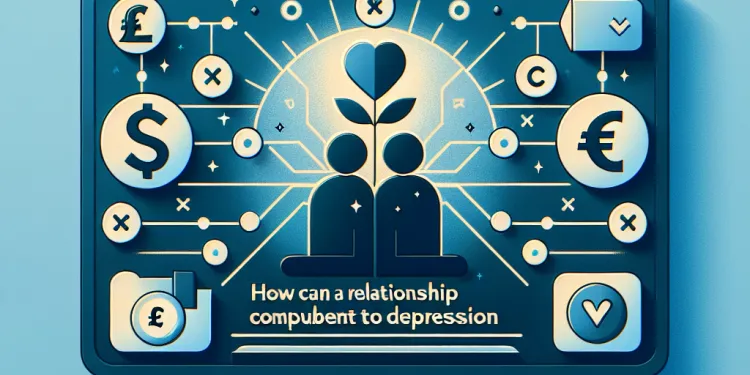
How can a relationship contribute to depression?
Relevance: 38%
-

What should I do if my partner dismisses my feelings of depression?
Relevance: 37%
-

Mental Health Support for Families - Latest Resources and Guidance
Relevance: 37%
-

I couldn't celebrate Hibs beating Hearts because I was that depressed
Relevance: 37%
Understanding Postnatal Depression
Postnatal depression is a common mental health condition that affects many new mothers, though it can also affect fathers and partners. It typically occurs within the first year after childbirth. Symptoms can include feelings of sadness, severe mood swings, fatigue, difficulty bonding with the baby, and withdrawal from family and friends. Understanding the condition is an essential first step for family members who wish to provide effective support.
Recognising the Symptoms
Family members should be aware of the signs of postnatal depression. These can include a persistent low mood, lack of enjoyment in activities, difficulty sleeping, and feelings of worthlessness. By recognising these symptoms early, families can encourage the affected individual to seek help from healthcare professionals, which is crucial in managing the condition.
Offering Emotional Support
Emotional support can make a significant difference for someone experiencing postnatal depression. Family members should listen without judgment, providing a safe space for the person to express their feelings. It is important to offer reassurance and remind them that recovery is possible with the right support and treatment. Regularly checking in and offering a listening ear can help reduce feelings of isolation.
Providing Practical Help
Practical support is also valuable. This can include helping with household chores, babysitting, or cooking meals. Easing the burden of daily tasks can give the affected person more time to rest and focus on their mental health. Encouraging rest and allowing the parent to take time for themselves when needed can significantly aid the recovery process.
Encouraging Professional Help
It is critical to encourage the individual to seek help from healthcare professionals. This might involve visiting a GP, speaking to a health visitor, or accessing support from mental health services. In the UK, there are several resources available such as the NHS's mental health services and organisations like the Association for Post Natal Illness (APNI) and Mind. Family encouragement and support can facilitate access to these essential resources.
Being Patient and Understanding
Recovery from postnatal depression can take time, and family members should remain patient and understanding throughout the process. Avoid putting pressure on the individual to ‘snap out of it’ or ‘get better quickly’. Instead, offer ongoing support and understanding, acknowledging that recovery is a gradual process that varies for each individual.
Conclusion
Supporting someone with postnatal depression requires understanding, empathy, and practical assistance. By recognising the symptoms, providing emotional and practical support, encouraging professional help, and remaining patient, family members can play a vital role in the affected individual’s recovery journey. With the right support, those experiencing postnatal depression can find a path to improved mental health and well-being.
What is Postnatal Depression?
Postnatal depression is when new parents feel very sad after having a baby. Both mums and dads can feel like this. It often happens in the first year after a baby is born. They might feel very tired, upset, or have trouble feeling close to the baby. It is important for family members to understand these feelings so they can help.
How to Spot the Signs
Family members should look out for signs of postnatal depression. This includes feeling sad all the time, not enjoying things they used to, not sleeping well, and feeling like they can’t do anything right. If you see these signs, it is good to talk to a doctor or nurse for help.
How to Help with Feelings
Listening and being there for someone can help a lot. Let them talk about how they feel without judging them. Tell them they can get better with help. Check in on them and be a friendly face. This can make them feel less alone.
How to Help with Daily Tasks
Helping with things like cleaning, babysitting, or cooking can be very helpful. This can give the new parents more time to rest. Encouraging them to rest and take breaks can help them feel better in the long run.
Getting Professional Help
Encourage getting help from doctors or nurses. This could mean seeing a GP or speaking to a health visitor. In the UK, you can use services like NHS mental health services or call groups like the Association for Post Natal Illness (APNI) and Mind. Family support is important to help them get the help they need.
Be Patient
Getting better from postnatal depression takes time. Be patient and understanding. Don’t tell them to just "snap out of it.” Support them as they slowly get better. Everyone's journey to feeling better is different.
Conclusion
Helping someone with postnatal depression means understanding how they feel, listening to them, and helping with chores. Encourage them to get help from professionals and be patient as they recover. With the right help, they can feel better and enjoy life with their baby.
Frequently Asked Questions
What is postnatal depression?
Postnatal depression is a type of depression that many parents experience after having a baby. It's more than just feeling down or having the 'baby blues' and can affect both new mothers and fathers.
How can I recognize postnatal depression in a family member?
Signs include persistent sadness, lack of energy, trouble sleeping, withdrawing from others, and feeling unable to cope. If these symptoms persist or worsen, it's important to seek professional help.
What should I do if I suspect a family member has postnatal depression?
Encourage them to speak with a healthcare professional and offer your support by listening and being there for them.
How can I offer practical help to someone with postnatal depression?
Offer to help with household tasks, look after the baby to give them a break, or prepare meals.
Should I encourage someone with postnatal depression to exercise?
Yes, gentle exercise can be beneficial, but it should be something they feel comfortable doing. Walking together can be a good start.
Can I help by educating myself about postnatal depression?
Absolutely. Understanding the condition can help you provide better support and empathize with what they're going through.
How important is listening when supporting someone with postnatal depression?
Listening is crucial. Be an empathetic ear without trying to immediately offer solutions. Sometimes just being heard can be very helpful.
Should I suggest therapy to someone with postnatal depression?
Yes, therapy can be very effective. Encourage them to discuss this option with their doctor, emphasizing that seeking help is a strength, not a weakness.
How can I ensure that the person gets professional help?
Gently suggest making an appointment with a healthcare provider and offer to accompany them if they would like.
Is medication a viable option for postnatal depression?
Yes, medication is one treatment option. This decision should be made with a healthcare professional who can assess their specific needs.
Can support groups help with postnatal depression?
Yes, support groups can be beneficial by providing a sense of community and shared experience with others who understand.
How can I support a new parent in maintaining their self-care routine?
Encourage them to take time for themselves, offer to babysit, and remind them that caring for themselves is just as important as caring for the baby.
Is it helpful to talk about feelings and emotions?
Yes, creating a safe space for them to express their feelings without judgment can be very supportive.
What should I avoid doing when supporting someone with postnatal depression?
Avoid minimizing their feelings, offering unsolicited advice, or comparing their experience to others.
Can spending time outdoors help someone with postnatal depression?
Yes, natural sunlight and fresh air can improve mood, so encourage walks or outings if they are up to it.
How can I encourage positive coping mechanisms?
Assist them in identifying healthy activities they enjoy and gently encourage engaging in these when they feel able.
What role does nutrition play in managing postnatal depression?
Balanced nutrition can support overall mental health. You can help by preparing healthy meals or snacks.
How can maintaining a routine help?
A consistent routine can provide a sense of stability and normalcy, which can be comforting.
What resources are available for families affected by postnatal depression?
Resources include support groups, helplines, and online forums. Local healthcare providers can also provide guidance.
How can I look after my own well-being while supporting someone with postnatal depression?
Ensure you also take time for self-care, set boundaries, and seek support if needed, such as talking to a therapist or joining a support group for caregivers.
What is feeling sad after having a baby?
Postnatal depression is a type of feeling very sad that many parents get after having a baby. It's more than just feeling a little sad or having the 'baby blues.' It can happen to both new mums and dads.
How can I tell if someone in my family is sad after having a baby?
If you notice feeling sad all the time, you don't have much energy, you have trouble sleeping, you don't want to be around other people, or you feel like you can't deal with things, these are signs you might need help. If these feelings don't go away or get worse, it's important to talk to a doctor or a professional who can help you.
What can I do if I think a family member feels very sad after having a baby?
Tell them it's good to talk to a doctor. Be a good friend by listening and being there for them.
How can I help someone who is sad after having a baby?
Having a baby can make some people feel very sad. This is called postnatal depression. Here are some ways you can help:
- Listen: Be there to listen if they want to talk. Let them know you care.
- Offer help: Ask if they need help with things like cooking or cleaning.
- Encourage rest: Remind them to rest when they can, even a short nap helps.
- Take walks together: A walk outside can make them feel better.
- Be patient: Understand that they might need time to feel better.
Tools to help:
- Use a journal: Writing down feelings can help them understand their emotions.
- Talk to others: Encourage them to speak with family, friends, or a doctor.
Ask if you can help with chores at home, watch the baby so they can have a rest, or make some food for them.
Should I help someone with postnatal depression to do exercise?
Postnatal depression is a feeling of sadness after having a baby. Exercise can help people feel better.
If you know someone with postnatal depression, you can gently suggest they try some exercise. Exercise can be a short walk, gentle stretching, or dancing to music at home.
You can support them by:
- Offering to join them in the exercise.
- Helping them find fun ways to move.
- Listening to how they feel.
It's important to talk to a doctor for more advice.
Yes, doing light exercise can help. It is important that they feel okay doing it. Taking a walk together is a good way to start.
Can I learn about sadness after having a baby?
Yes, learning is good! It can help you understand better. It shows you care.
Here’s what you can do:
- Read simple books or stories about it.
- Watch helpful videos online.
- Talk to a doctor or friendly helper.
- Join a support group to learn from others.
Yes, you can help. Learning about what they are going through can make you better at supporting them and understanding their feelings.
How Can Listening Help Someone Who Feels Sad After Having a Baby?
Listening is very important. Try to be a kind friend who listens. You don't always need to fix things. Sometimes, just hearing someone can help them a lot.
Can I tell someone with baby blues to see a doctor?
If someone feels really sad after having a baby, it might help to tell them to see a doctor or therapist.
These are some tools that could help:
- Talking: Sometimes talking to a friend or family can help.
- Helplines: There are phone numbers to call where kind people listen and help.
- Doctor or Therapist: They are experts who know how to help people feel better.
If they go to therapy, it might help them feel happy again.
Yes, therapy can help a lot. Tell them to talk to their doctor about it. Say that asking for help is strong, not weak.
How can I make sure the person gets help from a doctor or expert?
It might be a good idea to see a doctor. You can ask if they want you to go with them for support.
Can medicine help if I feel sad after having a baby?
Yes, medicine can help. A doctor will know best and can help decide if it's needed.
Do support groups help with feeling sad after a baby?
Having a baby is a big change. Some people feel very sad after their baby is born. This is called postnatal depression.
Support groups can be helpful. In a support group, people talk to others who feel the same. Here are some ways support groups can help:
- People listen to you.
- You can share your feelings.
- You learn you are not alone.
- You get advice and tips.
If you feel sad after having a baby, talk to someone. A doctor or a friend can help you find a support group.
Yes, support groups can help. They bring people together who have been through the same things. This makes everyone feel like they belong and are understood.
Here are some tips to help you:
- Join a group where you can meet people with the same feelings.
- Talk to others and listen to their stories.
- Share your own story if you feel comfortable.
How can I help a new parent take care of themselves?
Being a new parent is hard. They need to look after their baby and themselves too. Here are some ways you can help:
- Offer to watch the baby so they can rest.
- Bring meals so they don’t have to cook.
- Encourage them to take breaks and relax.
- Listen if they want to talk.
Being there for them makes a big difference.
Tell them it's okay to take a break and do something nice for themselves. Say you can look after the baby for a while. Remind them that looking after themselves is really important too.
Is it good to talk about feelings?
Talking about how we feel can be good for us. It can help us feel better.
If you feel sad or worried, try talking to someone you trust. This could be a friend, a family member, or a teacher.
Some things can help you talk about your feelings:
- Write down how you feel in a notebook.
- Draw a picture that shows your feelings.
- Use pictures or cards to show different feelings.
Remember, it's okay to have different feelings and to talk about them.
Yes, it helps them a lot when they have a safe place to talk about their feelings. Make sure no one judges them.
What should I not do when helping someone with postnatal depression?
When you are helping someone with postnatal depression, here are some things to avoid:
- Do not tell them to "cheer up" or "just get over it."
- Do not ignore their feelings. Listen to them carefully.
- Do not blame them for feeling sad or tired.
- Do not push them to do things they are not ready to do.
Here are some ways you can help:
- Listen and be kind.
- Ask if there is anything they need.
- Give them time and patience.
If you think they need more help, suggest talking to a doctor or therapist.
Don't make their feelings seem small. Don't give advice if they don't ask for it. Don't say things like "Other people feel bad too" to them.
Does going outside help with feeling sad after having a baby?
Spending time outside can help people feel better. Here are some tips:
- Go for a walk in the park.
- Sit in the garden or on the balcony.
- Try to notice the trees, flowers, and animals around you.
- Breathe in the fresh air.
Remember, it's okay to ask for help. Talking to a friend or family member can also make you feel better.
Yes, being outside in the sunlight and fresh air can make you feel happy. It's good to go for a walk if you feel like it.
How can I help someone handle problems in a healthy way?
Help them find fun and healthy things to do. Encourage them to try these activities when they feel up to it.
How does food help with feeling better after having a baby?
Eating good food can help moms feel better after having a baby. It's important to eat healthy foods. This can include fruits, vegetables, and food with proteins like eggs or chicken.
If you need help, ask a friendly doctor or a nutrition expert about what foods to eat.
Using an easy picture chart can help to know which foods are good. There are also apps that remind you to eat healthy.
Eating healthy foods can help with feeling good in your mind. You can help by making healthy meals or snacks.
How does having a routine help?
Having the same routine every day can make you feel calm and safe. It can help you feel like everything is okay.
What help can families get if someone has postnatal depression?
Postnatal depression is when someone feels very sad after having a baby. Families can get help in different ways:
- Talk to a Doctor: A doctor can give advice and ways to feel better.
- Support Groups: Talking to others who feel the same can be helpful.
- Online Help: Websites can give tips and stories from other families.
- Books and Videos: There are books and videos that explain postnatal depression.
If you or someone you know is feeling very sad, remember it's okay to ask for help.
You can get help from different places. There are support groups where people meet and talk. There are phone helplines you can call to talk to someone who will listen. Online forums are places on the internet where you can chat with others. Your local doctor or healthcare worker can also help you find the right help.
How can I take care of myself while helping someone with postnatal depression?
It is important to look after yourself when you are helping someone who feels very sad after having a baby. Here are some simple tips:
- Take breaks. Make sure you rest and do things you enjoy.
- Talk to someone you trust about how you feel.
- Eat healthy food and drink plenty of water.
- Do some exercise, like walking or stretching.
- Try to sleep well at night.
- If you feel very upset, it's okay to ask a doctor or counselor for help.
Remember, it is good to help others, but you should also care for yourself.
Remember to take time for yourself. It is important. You should also set rules about what you can do and what you can't do. If you need help, talk to someone who can listen, like a therapist or join a group where people help each other.
Useful Links
This website offers general information and is not a substitute for professional advice.
Always seek guidance from qualified professionals.
If you have any medical concerns or need urgent help, contact a healthcare professional or emergency services immediately.
Some of this content was generated with AI assistance. We’ve done our best to keep it accurate, helpful, and human-friendly.
- Ergsy carfully checks the information in the videos we provide here.
- Videos shown by Youtube after a video has completed, have NOT been reviewed by ERGSY.
- To view, click the arrow in centre of video.
- Most of the videos you find here will have subtitles and/or closed captions available.
- You may need to turn these on, and choose your preferred language.
- Go to the video you'd like to watch.
- If closed captions (CC) are available, settings will be visible on the bottom right of the video player.
- To turn on Captions, click settings .
- To turn off Captions, click settings again.
More Items From Ergsy search
-

How can family members support someone with postnatal depression?
Relevance: 100%
-

Are there support groups for postnatal depression?
Relevance: 100%
-

Postnatal Depression
Relevance: 96%
-

What is postnatal depression?
Relevance: 95%
-

Is postnatal depression preventable?
Relevance: 92%
-

Are there treatments available for postnatal depression?
Relevance: 91%
-

Is postnatal depression a long-term condition?
Relevance: 91%
-

How is postnatal depression diagnosed?
Relevance: 91%
-

Postnatal Depression - Leanne's Story
Relevance: 90%
-

What causes postnatal depression?
Relevance: 90%
-

What are the symptoms of postnatal depression?
Relevance: 88%
-

Can fathers experience postnatal depression?
Relevance: 87%
-

How do I know if I have postnatal depression? | NHS
Relevance: 85%
-

What should I do if I suspect I have postnatal depression?
Relevance: 84%
-

Can postnatal depression affect subsequent pregnancies?
Relevance: 84%
-

Can lifestyle changes help with postnatal depression?
Relevance: 83%
-

How is postnatal depression different from the 'baby blues'?
Relevance: 82%
-

Can postnatal depression recur after treatment?
Relevance: 82%
-

How does postnatal depression affect bonding with the baby?
Relevance: 81%
-

Is medication necessary for treating postnatal depression?
Relevance: 81%
-

Should someone with postnatal depression seek professional help?
Relevance: 80%
-

Can diet impact postnatal depression?
Relevance: 79%
-

How soon after childbirth can postnatal depression occur?
Relevance: 55%
-

Mental Health Support Resources for Families
Relevance: 51%
-

What role do unhealthy dynamics play in causing depression?
Relevance: 42%
-

Clinical depression: Lawrence's story | NHS
Relevance: 41%
-

Mental Health Support for Families: Resources and Strategies
Relevance: 41%
-

Treating anxiety and depression - www.slam.nhs.uk
Relevance: 40%
-

What support is available for families of individuals with PIMD?
Relevance: 40%
-

How can families support a member with autism?
Relevance: 40%
-

Mental Health Support for Families: Resources and Helplines
Relevance: 39%
-

Mental Health Support for Families: Resources and Guidance
Relevance: 39%
-

7 Signs Your Relationship is Making You Depressed
Relevance: 38%
-

Government Support Schemes for Families Affected by Inflation
Relevance: 38%
-

Government Announces New Support Scheme for Low-Income Families
Relevance: 38%
-

What support is available for families dealing with type 1 diabetes?
Relevance: 38%
-

How can a relationship contribute to depression?
Relevance: 38%
-

What should I do if my partner dismisses my feelings of depression?
Relevance: 37%
-

Mental Health Support for Families - Latest Resources and Guidance
Relevance: 37%
-

I couldn't celebrate Hibs beating Hearts because I was that depressed
Relevance: 37%


